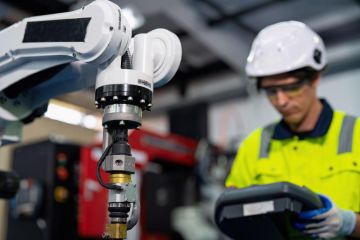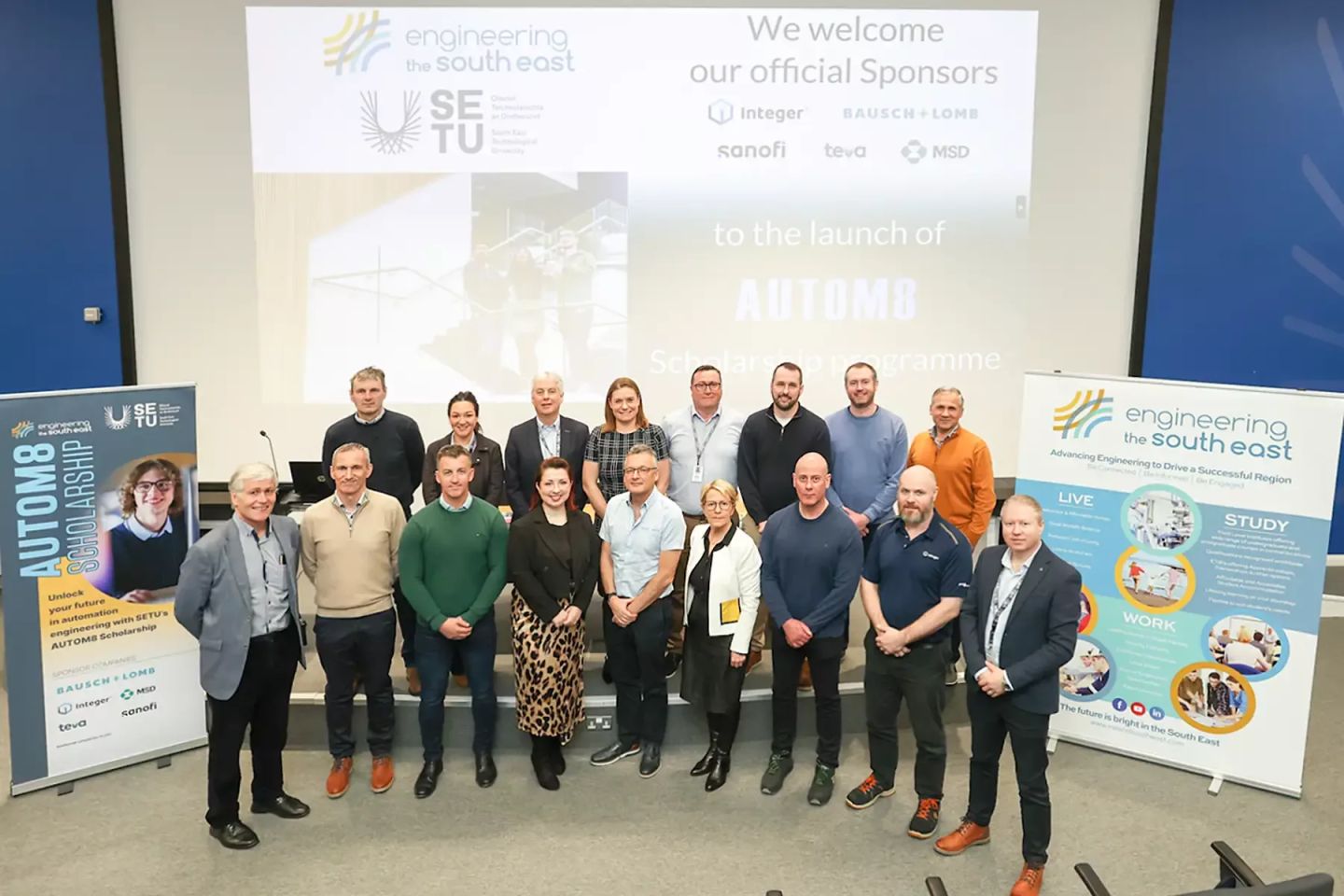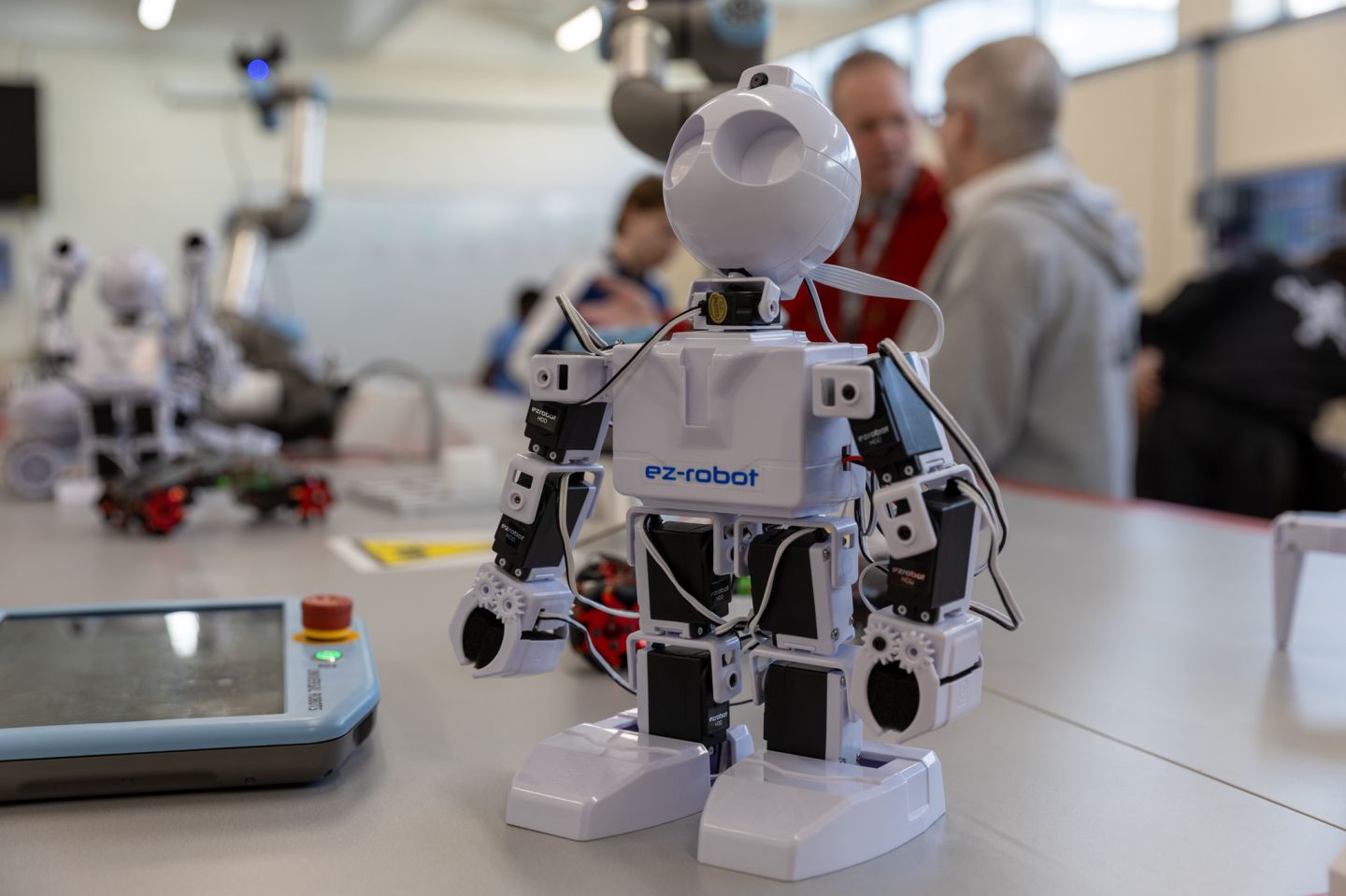Robotics and Automated Systems

What is the Course about?
Robotics and Automated systems continue to grow in importance within manufacturing and industrial production systems as companies leverage their ability to advance manufacturing and increase production. Robots have an impressive range of applications e.g. packaging, welding, painting, machining, inspecting parts to name a few and find application in almost every industry such as pharmaceutical, chemical, automotive, healthcare, agricultural etc.
Robotics and Automated systems is a multidisciplinary area that combines electronic engineering, mechanical engineering, and computer science. In particular, it includes embedded programming, control systems, automated decision-making, and power electronics. Due to the level of technicality involved in this specialized and interdisciplinary field, there is a shortage of qualified graduates and personnel in the industry.
Course Structure
The programme is based on three pillars: electronics, mechanics and computing, enabling candidates to acquire knowledge, skill and expertise to design, develop, commission and maintain robotics and automated systems in a variety of environments and applications for relevant industries. This programme is designed to produce an adaptable graduate, capable of working across present and future industries where robotic and automated systems are employed.
Special Features:
- This course is designed to have a good balance between theory, practical laboratory classes & hands-on project-based learning exercises
- Access to Robotics and Automated Systems laboratory equipment and resources on campus as well as computer software, tools & simulation labs
- Work placement and project collaboration opportunities exist with leading Robotics and Automation companies which are based here in Ireland
- Exit Awards: Higher Certificate in Robotics and Automated Systems (NFQ Level 6) after Year 2, Bachelor of Electronics Engineering (NFQ Level 7) after Year 3
Year 1
| Semester 1 | Semester 2 |
|---|---|
| Computer Aided Drafting (M) | Electrical and Electronic Circuits (M) |
| Electrical and Electronic Fundamentals (M) | Engineering Mathematics 2 (M) |
| Engineering Mathematics 1 (M) | Dynamic Mechanics (M) |
| Static Mechanics (M) | Robotics Project (M) |
| Robotics Programming 1 (M) |
M is a mandatory subject - E is an elective subject
Year 2
| Semester 3 | Semester 4 |
|---|---|
| Industrial Automation and Robotics (M) | Engineering Mathematics 4 (M) |
| Engineering Mathematics 3 (M) | Mechatronics Project (M) |
| Dynamics 2 (M) | Robotics Programming 3 (M) |
| Robotics Programming 2 (M) | Embedded Systems 1 (M) |
| Drives and Actuators (M) | Introduction to Systems and Control (M) |
M is a mandatory subject - E is an elective subject
Year 3
| Semester 5 | Semester 6 |
|---|---|
| Industrial Compliance, Safety and Law (M) | Network Programmability and Automation (E) |
| Engineering Mathematics 5 (M) | Industrial Studies (E) |
| Computer Networks 1 (M) | Computer Networks 2 (E) |
| Robotic Operating Systems (M) | Development Project (Engineering) (E) |
| Control and Human Interfacing (M) | Software Defined Radio (E) |
| Work Placement (E) | |
| Study Semester Abroad (E) |
M is a mandatory subject - E is an elective subject
Year 4
| Semester 7 | Semester 8 |
|---|---|
| Computer Vision (M) | Robot Mechanics (M) |
| Artificial Intelligence and Machine Learning (M) | Final Year Project (M) |
| Industrial Networks for Robotics (M) | Advanced PLCs (M) |
| Autonomous Robotics (M) | Deep Learning (M) |
| Power Electronics & Electrical Systems (M) |
M is a mandatory subject - E is an elective subject
What are the minimum entry requirements?
- 2 subjects: H5
- 4 subjects: O6/H7
- English or Irish: O6/H7
- Mathematics: O6/H7
What follow-on study opportunities are available?
Graduates can progress to postgraduate study at Masters (NFQ Level 9) or Doctorate (NFQ Level 10)level.
What exemptions will I receive?
-
Notes
-
What will I be able to do when I finish the course?
Robotics and Automated systems draws on expertise of many engineering disciplines and elements of mechanical, manufacturing, electrical, electronic, telecoms, networking, and industrial engineering. Robotics and Automated Systems Engineers could be suitable for the following job titles:
- Robotics Engineers
- Robotics Test Engineers
- Automation System Engineers
- Senior Automation Engineer
- Senior Controls Engineer
- Senior C++ Engineer - R&D role
- Process Excellence Analyst
- Controls Team Lead
- Robotics Process Automation (RPA)Consultant
- Maintenance Test Engineer
- Field Service Engineer
- Solutions Architect Consultant (Very senior role)
- Engineering Project Manager.
The above positions are suitable for the following areas: automotive, aerospace, nuclear, mining, textile, computer industries, military, space, educational, life sciences, pharmaceuticals, medical devices and high volume manufacturing.
Course Leader







